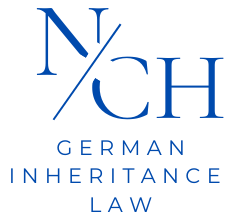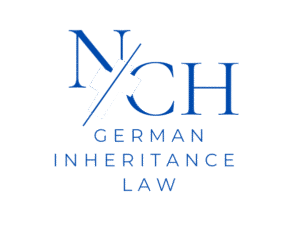Legacies (Vermächtnis) in German Inheritance Law: Precision Planning for Cross-Border Families
The difference between an heir and a legatee is crucial: heirs step into the shoes of the deceased as universal successors, inheriting both assets and debts. A legatee, by contrast, only receives the item or benefit defined in the will or inheritance contract. This makes the legacy a surgical tool in estate planning. But precision is everything—unclear wording, overlooked tax rules, or poor cross-border coordination can unravel even the best intentions.
Want to reward someone without making them an heir? In German law, a legacy lets you pass on a specific asset — like a house, artwork, or cash — without adding the recipient to the pool of heirs or burdening them with estate debts. Used correctly, it’s a precision tool that protects family harmony, optimises taxes, and ensures your wishes are carried out exactly as intended.
Planning Goals of a Legacy
Legacies serve many strategic purposes. They allow testators to allocate specific assets without disturbing the overall estate structure. They provide flexibility by allowing contingent or substitute beneficiaries. They can be used to protect a spouse with a Vorausvermächtnis in a Berlin Will, ensuring liquidity while preserving capital for children. And they can be powerful tax tools, enabling families to make use of inheritance tax allowances upon the first death and minimize the burden of compulsory share (Pflichtteil) claims.
Common Types of Legacies
German law recognizes several forms of legacies, each with unique uses:
- Specific Legacy (Stückvermächtnis): A clearly defined asset, such as „my house in Berlin.“ Simple, but must be carefully worded to avoid ambiguity.
- Generic Legacy (Gattungsvermächtnis): A type of item, e.g., „an automobile.“ This often triggers disputes about quality and selection.
- Pre-Legacy (Vorausvermächtnis): A benefit for a co-heir on top of their share, often used to strengthen a surviving spouse.
- Option Legacy (Wahlvermächtnis): The legatee can choose between several designated items.
- Substitute or Subsequent Legacy (Untervermächtnis / Ersatzvermächtnis): Provides for an alternative beneficiary if the first cannot or will not accept.
- Procurement Legacy (Verschaffungsvermächtnis): Requires heirs to acquire the item before delivering it.
Each form must be chosen with care, as unclear drafting can trigger litigation or block estate settlement.
Step 1
Step 2
Get a Legal Roadmap
Step 3
We Handle Everything
Execution and Enforcement of Legacies
The legatee does not automatically acquire ownership of the asset. Instead, they receive a claim against the heirs, who must perform the transfer. Performance may take the form of bank transfer, delivery of movable property, or registration in the land register (Grundbuch) for real estate. If heirs refuse to fulfill the legacy, the legatee may sue for performance and enforce the claim through German courts. This is why many testators appoint an executor (Testamentsvollstrecker) to oversee the fulfillment of legacies and avoid disputes among heirs and beneficiaries.
Deadlines and Limitation Periods
Legacy claims are immediately enforceable upon the testator’s death, unless otherwise specified. However, they are subject to a statute of limitations: three years from the end of the year in which the legatee became aware of their entitlement. If the deadline passes, claims may expire. Careful drafting and proactive enforcement are therefore essential.
Tax Treatment of Legacies
For tax purposes, a legacy is treated the same as an inheritance. The legatee benefits from the same allowances and tax classes as heirs. At the same time, for the heirs, the legacy is treated as an estate debt, reducing their taxable estate base. Strategic use of legacies can therefore shift assets to beneficiaries in a tax-efficient manner. A Vorausvermächtnis for a spouse, for example, may allow the spouse to distribute assets to children within their tax-free allowances, reducing the total inheritance tax burden across generations.
Practical Tips for Cross-Border Families
In U.S.–German estates, legacies require extra care:
- Draft wills that are formally valid under both German and U.S. law.
- Be precise—avoid vague wording such as “one of my cars.”
- Coordinate inheritance tax and U.S. estate tax planning to avoid double taxation.
- Appoint an executor to enforce the legacy across jurisdictions.
- Consider currency, location of assets, and practical enforceability abroad.
Frequently Asked Questions (FAQs)
5 Top Tipps
- Use clear and unambiguous wording—avoid generic terms that create disputes.
- Always coordinate with compulsory share (Pflichtteil) rules—legacies can trigger unexpected claims.
- Appoint an executor to guarantee proper enforcement, especially in cross-border cases.
- Leverage tax allowances by distributing assets through legacies at the right time.
- Monitor limitation periods—unclaimed legacies may expire after three years.
Conclusion
A legacy is a scalpel, not a hammer—precise, flexible, and tax-efficient, but only as effective as its drafting and enforcement. Poorly worded legacies can undermine estate plans and fuel litigation. Properly structured, however, they allow you to reward chosen beneficiaries, protect family harmony, and optimize tax outcomes.
German Attorney Nicola Casper-Hoesl advises international families on designing and enforcing legacies that are airtight, tax-savvy, and fully enforceable under both German and U.S. law.
During a very challenging time both emotionally and logistically, I could always count on Nicola. She expertly guided me through the ins and outs of German inheritance law. It was a pleasure to work with her.
Nicola is very knowledgeable about German /International Law and listens to her clients’ needs during challenging times in their lives.
She is very kind , responsive and efficient in her email & phone conversations. I was delighted to work with her in solving my niece’s case.
I highly recommend Nicola if someone needs any law advice about Inheritance or German/International law cases.
Nicola is an exceptional attorney with extensive knowledge in German inheritance law. Navigating international legal matters can be frustrating and complex, but Nicola made the process smooth and stress-free. Her professionalism along with clear communication were invaluable throughout the entire ordeal.
If you are in need of a knowledgeable, reliable, and supportive lawyer for inheritance matters involving Germany, Nicola is the best choice! I highly recommend her.
Nicola helped our family recover a €250k inheritance stuck in German probate—without us ever leaving California. Her team handled everything in 8 months.
Provided expert legal guidance through a very complex inheritance situation involving German banks, courts, and tax authorities. Extremely detailed, diligent, and knowledgeable. I would not have been able to resolve all the legal issues without her help. Very highly recommended!

